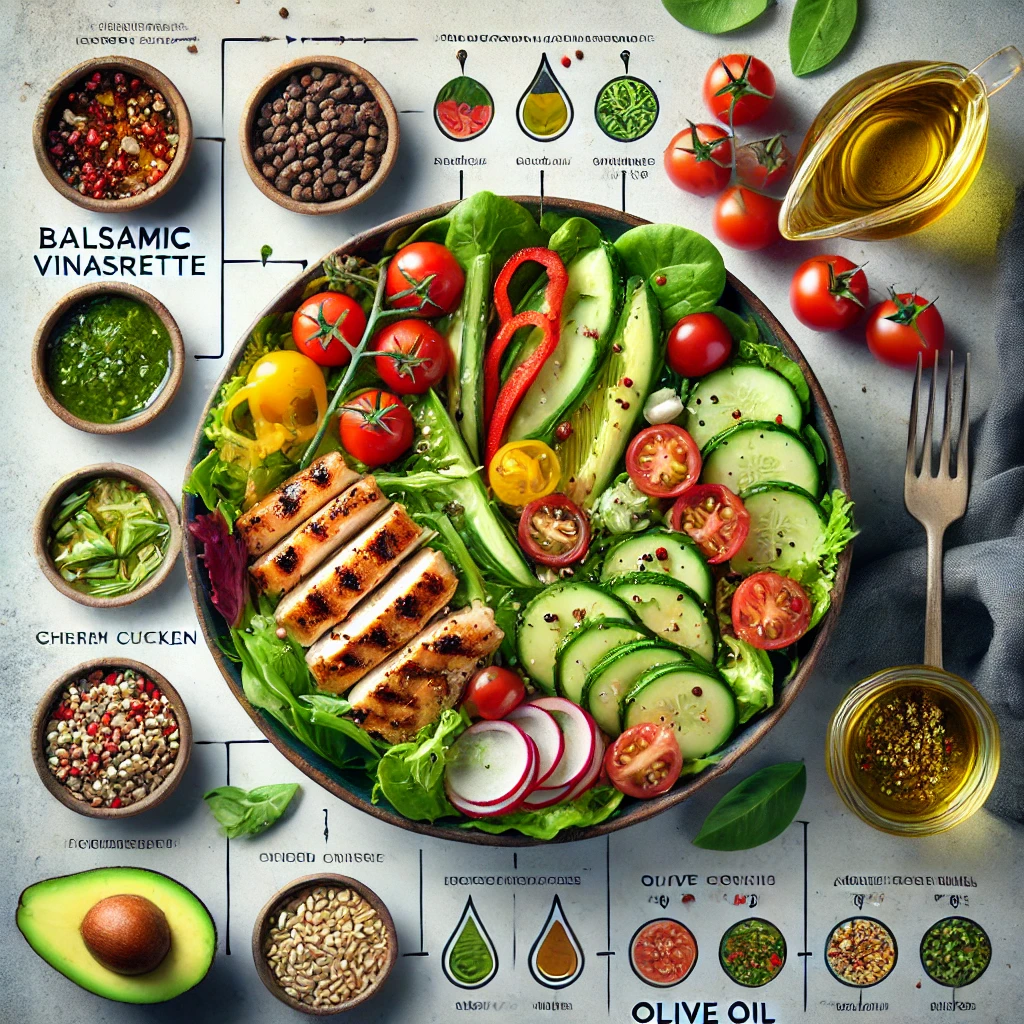Bill Giebler is a renowned advocate of holistic nutrition and sustainable living, making his name a guiding light for anyone seeking a healthier lifestyle. His philosophy goes beyond the basics of eating to encompass a full-circle approach to wellness, focusing on the interconnectedness of personal health, mindful living, and environmental responsibility. This comprehensive guide unpacks Giebler’s principles, offering practical advice on integrating his life-enhancing strategies into your daily routine.
Who Is Bill Giebler?
Bill Giebler’s impact in the world of nutrition stems from his passion for educating others on the profound effects of their food choices. As a thought leader and writer, his work bridges the gap between personal health and the broader issues of environmental sustainability. His career reflects a commitment to raising awareness about food systems, advocating for whole foods, and inspiring mindful habits that contribute to long-term well-being. Giebler’s philosophy doesn’t just aim to transform individual lives but seeks to influence communities and the planet through sustainable choices.
The Core Philosophy of Bill Giebler Nutrition
At the heart of Giebler’s approach lies a commitment to whole foods—unprocessed, natural ingredients that retain their nutrient density and integrity. Whole foods serve as the building blocks for a diet that promotes optimal physical and mental health. Giebler emphasizes the power of simplicity in eating, steering away from over-processed and artificially enhanced options that dominate modern diets.
Equally important is his advocacy for sustainability. Giebler believes that our dietary habits have far-reaching implications beyond individual health. By choosing organic, local, and ethically sourced foods, consumers can make a positive impact on the environment and support ethical farming practices. His philosophy connects the dots between what’s on our plates and the health of the planet.
Another cornerstone of Giebler’s philosophy is mindfulness. Mindful eating encourages individuals to slow down, savor their meals, and appreciate the effort that goes into growing and preparing food. This practice not only enhances digestion and satisfaction but also fosters a sense of gratitude and awareness about food choices.
Why Whole Foods Are the Foundation of Nutrition

Whole foods provide the body with essential nutrients that processed foods often lack. Packed with vitamins, minerals, fiber, and antioxidants, they deliver the nourishment our bodies need to function optimally. In contrast, processed foods are frequently laden with artificial additives, unhealthy fats, and excess sugars, which can lead to chronic health problems like obesity, diabetes, and heart disease.
Fresh fruits and vegetables are at the forefront of Giebler’s recommendations. Consuming a variety of colorful produce ensures a diverse intake of nutrients and helps protect against oxidative stress. Seasonal and organic options are particularly valuable for their superior flavor and environmental benefits. Whole grains, nuts, seeds, and plant-based proteins like lentils and chickpeas round out the dietary spectrum, providing long-lasting energy and vital nutrients.
The Environmental Impact of Our Food Choices
Giebler emphasizes that every bite we take has environmental consequences. The modern food industry contributes significantly to greenhouse gas emissions, water waste, and deforestation. By choosing plant-based meals and minimizing food waste, individuals can dramatically reduce their ecological footprint.
One of Giebler’s key strategies is advocating for local and organic farming. Locally sourced foods travel shorter distances to reach your plate, reducing transportation emissions while supporting small-scale farmers. Organic farming, on the other hand, avoids harmful pesticides and synthetic fertilizers, preserving soil health and promoting biodiversity.
Mindful Eating: Connecting the Mind and Body Through Food
Mindful eating is about more than just slowing down during meals. It’s a practice that encourages individuals to engage all their senses while eating, fostering a deeper connection to their food and its origins. By focusing on the taste, texture, and aroma of each bite, you can enhance your enjoyment and become more attuned to your body’s hunger and fullness cues.
Stress often leads to emotional eating, where food becomes a coping mechanism rather than a source of nourishment. Giebler’s approach includes addressing stress at its root through practices like meditation, deep breathing, and physical activity. These strategies help reduce cortisol levels, improve digestion, and create a more harmonious relationship with food.
Practical Tips for Adopting Bill Giebler’s Principles
Transitioning to a lifestyle inspired by Giebler’s philosophy doesn’t have to be overwhelming. Start by making small changes, such as replacing one processed item in your diet with a whole-food alternative. For instance, swap sugary cereals for oatmeal or choose whole-grain bread over white bread. Over time, these incremental adjustments can lead to lasting habits.
Meal planning is another critical aspect of success. Preparing meals in advance saves time, reduces stress, and ensures you stay on track with your dietary goals. Focus on simple, nutrient-dense recipes that incorporate proteins, healthy fats, and plenty of vegetables.
Giebler also provides guidance for eating well on a budget. Staples like beans, lentils, rice, and seasonal produce are both affordable and versatile. Shopping at farmers’ markets or joining a local co-op can further reduce costs while providing access to fresh, high-quality ingredients.
Overcoming Challenges in Embracing Giebler’s Nutrition Philosophy

One common hurdle is limited access to organic or locally sourced foods. If these options aren’t available, frozen fruits and vegetables are a viable alternative. They retain most of their nutrients and are often more affordable than fresh produce.
Busy lifestyles can also make it difficult to stick to healthy eating habits. Giebler recommends batch cooking and prepping ingredients in advance. Simple recipes like salads, grain bowls, and stir-fries can be made quickly and tailored to your tastes.
Another challenge is the perception that healthy eating is expensive. By focusing on cost-effective whole foods and reducing waste, you can build a nutritious diet that fits your budget. For example, leftovers can be transformed into new meals, and excess produce can be frozen for later use.
The Long-Term Benefits of Bill Giebler Nutrition
The benefits of adopting Giebler’s principles extend far beyond immediate health improvements. A diet rich in whole foods enhances energy levels, strengthens the immune system, and reduces the risk of chronic diseases. Additionally, mindful eating fosters a sense of gratitude and awareness, creating a more fulfilling relationship with food.
On a larger scale, sustainable eating habits contribute to environmental preservation. By choosing ethical and eco-friendly options, you’re supporting a food system that values health, fairness, and ecological balance. These choices make a tangible difference in combating climate change and protecting natural resources for future generations.
Getting Started with Giebler’s Approach Today
If you’re ready to embrace Bill Giebler’s philosophy, start small and build gradually. Incorporate one new habit at a time, such as replacing processed snacks with fresh fruit or dedicating a few minutes each day to mindful eating. Keep track of your progress and celebrate milestones along the way.
Engage with local food communities or follow thought leaders like Giebler for inspiration and support. Sharing your journey with others can provide motivation and create a network of like-minded individuals who share your commitment to health and sustainability.
Final Thoughts
Bill Giebler’s nutrition philosophy offers a holistic approach to health and sustainability that resonates in today’s world. By prioritizing whole foods, embracing mindfulness, and making eco-conscious choices, you can transform your health and contribute to a healthier planet. His principles remind us that nutrition is not just about what we eat—it’s about how we live and the impact we make on the world.
FAQs
What is Bill Giebler’s main focus in nutrition?
Bill Giebler emphasizes whole foods, mindfulness, and sustainable choices that benefit both personal health and the environment.
How can I begin adopting his philosophy?
Start by replacing processed foods with whole alternatives, practicing mindful eating, and choosing locally sourced or organic products when possible.
Is his approach budget-friendly?
Yes, Giebler advocates for cost-effective options like lentils, beans, rice, and seasonal produce, which make healthy eating accessible to all.
Why does sustainability matter in nutrition?
Sustainable practices reduce environmental damage, promote biodiversity, and support ethical food systems, ensuring long-term health for the planet.
Can mindful eating really improve my health?
Absolutely. Mindful eating helps you develop a better relationship with food, enhances digestion, and reduces stress-driven eating patterns.



